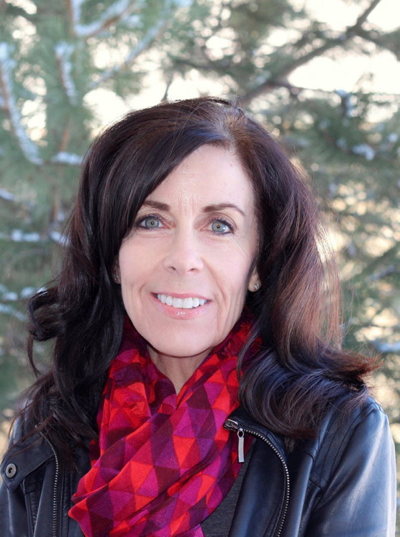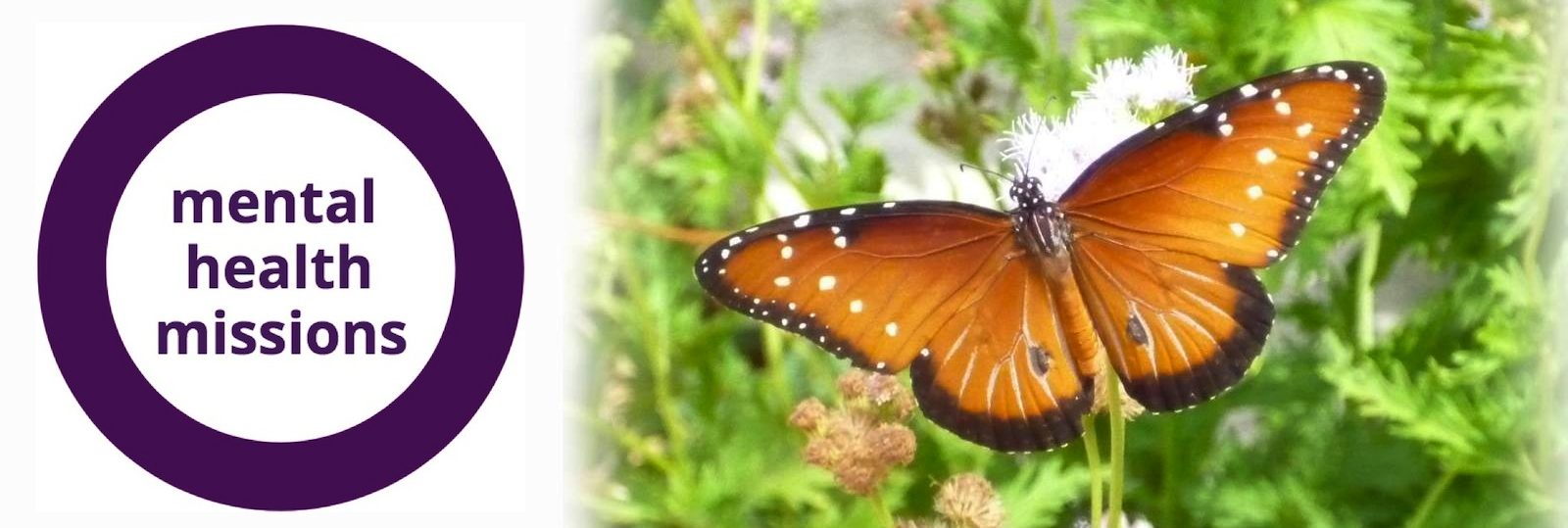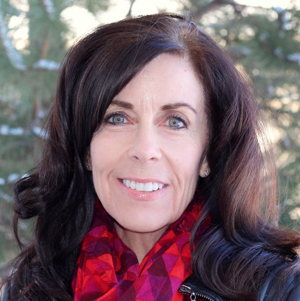Practicing self-care: what it is, why it’s important, and how to incorporate it into your daily routine
There are a lot of trendy terms that are floating around nowadays. We might hear about these commonly used terms yet, we might not know what is behind the terminology. Trendy or not, self-care is something that has gotten a lot of buzz lately and there’s a reason for that: self-care is good for us. When we engage in self-care, we are better able to relax, rejuvenate, reflect, and regroup. But, self-care doesn’t always come easily. It can be hard to pause and focus on ourselves. For some people it can feel unnatural, for others it can feel selfish. Whatever your approach is to self-care and however you may feel about it, engaging in self-care is undeniably beneficial. Yet, many of us don’t know where to start when it comes to self-care.
Mental Health Missions speaks with Jacki Saunders, Licensed Marriage & Family Therapist exclusively about self-care, what it is, how to acquaint ourselves with the concept, and cultivate the practice into our ever busy lives. Here are some highlights from an insightful and informative conversation:
Mental Health Missions: What is self-care and why is it important?
Jacki Saunders: I think self-care can be one of the hardest things for a lot of people to even acknowledge. It’s about tuning into yourself and checking in with yourself about what you need. And not just once, people need to be checking in with themselves multiple times a day. It’s about asking yourself how you are doing, what you need, and how you can meet those needs. When we don’t check in with ourselves, we lose that connection and understanding of ourselves.
MHM: Are there any perils or disadvantages that can occur from not tending to our own self-care needs?
JS: If people don’t practice self-care and don’t acknowledge what they need, it can be harmful. I have a poster that hangs in my office, it says, “If you don’t make time for your wellness, you will be forced to make time for your illness.” If there is an absence of self-care, your body will start talking to you. I explain to people that not listening to your body can manifest in multiple ways and can have negative results. If someone is ignoring their central needs, there can be a lot of fallout and that can happen in the form of illness, feeling low-energy, being tired, physical distress, fatigue, feeling less connected, loneliness, and experiencing anger.
MHM: What does self-care look like and what are some examples of things people can do to engage in effective self-care?
JS: It can look a variety of different ways. I think one of the myths is that people often regard self-care as a day at the spa and while it can be that, it doesn’t have to be elaborate or expensive. Self-care can be as simple as asking yourself, “how am I doing?” This simple question can be a great start for many people. It’s amazing how easy it is to be neglectful of ourselves and our needs. I sometimes recommend to my clients to put a sticky note on the bathroom mirror with the question, [“How am I doing?”] It’s a reminder to not ignore your own needs. It’s also being cognizant about what isn’t working for you. For example if you continuously find yourself feeling tired or stressed, you are learning how you are doing and acknowledging that. This presents an opportunity to be proactive and make changes to improve the situation [if there is a need to].
People can also do things that promote feeling good and having fun. Playing a game, going for a walk, being in nature, having an authentic conversation with someone you care about, exercising, engaging in good sleeping and eating patterns, and filling your body with food that is healthy and nurturing. Another thing that people can do—and this is a hard one—is periodically disconnect from technology. This can be challenging given how tied we are to our devices.
MHM: Oh technology. We certainly have to address that. What role does technology have when it comes to self-care and is there a cost of being so connected to our devices?
JS: The cost is being disconnected from others. Technology is a false way to communicate. People have this mindset of ‘I’m reaching out and connecting with other people [through social media] but you’re really not because connecting by text and social media does not allow for authenticity or accountability. If someone is only adept at connecting with others through their devices, when that person has the opportunity to connect with another person in an authentic way, it becomes very challenging and might not happen altogether.
A lot of people have the mindset that it is safer to connect via the phone. It’s as though “hiding behind the phone” affords this protective layer but there is still vulnerability. We see that with things like online bullying, sexual harassment, and ghosting. It can sometimes feel like as a society we have had to establish entirely new ways of interacting based on technology. The rules are ever changing and there is a lack of genuineness. There are entire generations who have been raised exclusively with social media and it begs the question, “do they know what to do when the power goes out and there’s no Wi-Fi or phone connection?” The further away you are from connecting with others, the further away you are from connecting with yourself and self-care is all about connecting with yourself.
MHM: Are there ways in which modern technology can be productive, even helpful when it comes to self-care?
JS: I think it is all about moderation and balancing technology. There are tons of positives when it comes to technology, there are countless apps that can help with things like exercise, mood, sleeping, meditation, and healthy eating. Technology can definitely be a force for good. What I tell my clients is ‘land somewhere that makes sense and allows for both flexibility & compromise.’ With technology comes a lot of conveniences. People can work from home and have a more flexible schedule but when that flexibility turns into working all the time that becomes counter to the positive aspects and can ultimately be a disruption.
It’s ok to check your email or social media accounts, you just want to do these things in moderation and not get sucked into the rabbit hole. Watching a show or movie is a great way to decompress but if all of a sudden you are watching TV for ten hours straight and staying up until 3am, then that impedes on self-care. We have to remember that screens can be a great way to unwind and disconnect. It’s ok to get lost in a movie but when a person becomes so consumed by their screen that they are disconnected indefinitely, that’s when it becomes problematic.
MHM: On the surface, it doesn’t sound too difficult to ask yourself, “how am I doing?” Yet, a lot of people struggle with doing just that. Why is that and are there risks that come from not carving out time to listen to your body?
JS: For a lot of people self-care and checking in with oneself is a foreign and uncomfortable concept. We live in a world where many of us are on this endless hamster wheel; we keep doing the same things that aren’t working. We are then diverted in all different directions. Often we are so focused on the needs of others that our own needs become secondary. Some common examples of this are being hyper-focused on your children, caring for adult parents, the workaholic culture we live in, and being distracted by all the “noise” of social media, just to name a few. The bottom line is if you have a tendency to focus on the external, it’s going to be challenging to engage in good and effective self-care because your lens is looking outward. Self-care is about looking inward.
MHM: How can people who are not prone to the concept of self-care start slowly and take small and preventative steps toward potential fallout?
JS: Checking in with yourself is key. As I mentioned, I sometimes tell my patients to place sticky notes that say “how are you doing” in places where they will see them– the bathroom mirror, on the fridge, in their car. This can serve as an important reminder and make us pause. If a person wants to start small, think of three words to describe how you are feeling, one in the morning, one in the afternoon, and one at night. I recommend writing these words down and looking at them at the end of the week. See what you notice about how you are doing and allow yourself to reflect on that. If we don’t pause to pay attention, we miss an opportunity to take note of how we are feeling.
For some people the idea of asking themselves how they are may seem silly but like all things, self-care takes practice. As you start monitoring yourself and how you are feeling, it will start to become easier. It might require some intentionality and goal setting and that’s OK. Schedule self-care time for yourself, it’s that important.
If you notice that you are tired, sluggish, depressed, or are low on energy, ask yourself what can you do to feel better. I recommend creating a running list of effective and healthy self-care activities. It might be going for a walk, calling a friend, reading a book, watching a movie. Another thing that can be beneficial is practicing gratitude and considering things you are grateful for or keeping a gratitude journal. This can be a means of self-care. Something else that can be helpful is being self-affirming. People might also want to use sticky notes to write down positive affirmations. It can be as simple as seeing a message you have written to yourself that says, “I believe in myself.” Those little reminders can go a long way.
MHM: When is the best time to engage in self-care?
JS: Anytime and all the time. Getting to know yourself is key. It might sound scary and some people may resist and struggle to be with themselves but it will get easier and it pays off. Self-care cannot be compartmentalized, it has to be integrated into a person’s life and is a way of being. There is never a bad time to do that or to start doing that.
MHM: What role does self-care (or lack of it) have when it comes to a person being at risk for developing mental health issues like depression or anxiety?
JS: When people are persistently ultra-focused on things outside of themselves and don’t take the time to pay attention to what they need, there is a risk to being vulnerable. It could be vulnerability to getting sick, to becoming stressed, to not eating well, to drinking in excess, or to feeling more anxious and depressed. When a person doesn’t focus on taking care of themselves emotionally, there is a risk. We have to start thinking about good mental health and self-care the same way we look at physical health. We expect and encourage people to tend to their physical well-being so they don’t get sick, the same applies to our emotional health.
MHM: Are there any other thoughts you have about this topic or suggestions you would provide to someone who is trying to more seamlessly incorporate self-care into their routine?
JS: Look to those who are engaging in self-care well and take notice. Make sure you set aside time for self check-ins and be willing to look inward. If people could allow themselves to sit with the idea of getting to know who they are [even a little bit more], self care would be easier. And, it’s important to point out that sometimes people get to know themselves better by practicing self-care. It affords you time, space, and the ability to reflect. Self-care can give way to realizations and revelations. It can allow for an understanding of who you are and create greater self-connection, which can be beneficial to so many other aspects of your life. Connection is key. That is what self-care is all about.
 Jacki Saunders is a Licensed Marriage & Family Therapist based in Broomfield, Colo. For more information about her services, click here. Photo courtesy of Ms. Saunders.
Jacki Saunders is a Licensed Marriage & Family Therapist based in Broomfield, Colo. For more information about her services, click here. Photo courtesy of Ms. Saunders.


 by
by 
